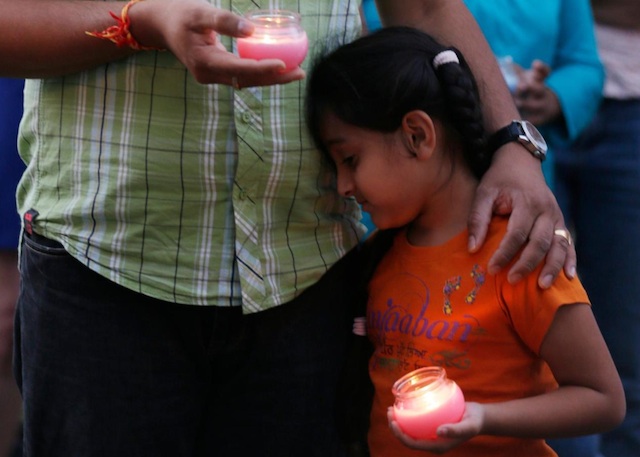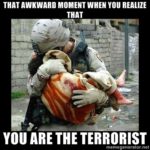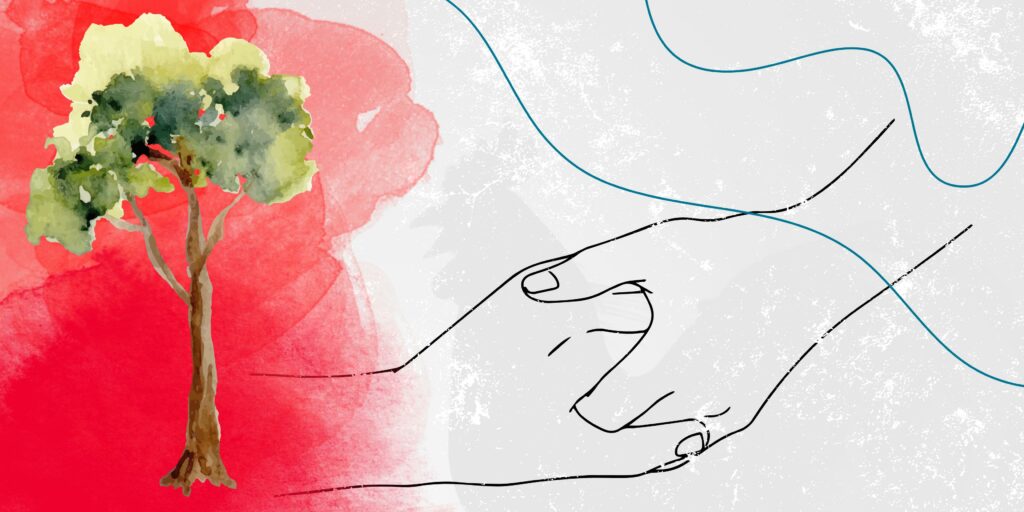Matthew Salesses on the power of words and appearances.

August 7, 2012
Recently, I had a conversation with my wife in which I underestimated the word “terrorist.” She told me about a Korean hero who made lunchbox bombs and threw them at Japanese military officers (as I understand it). She said Koreans were angry because the Japanese had misrepresented this hero. That was when I used the word, perhaps stupidly, starting a fight I quickly tried to back away from.
And I can understand why she was upset, though by definition, “terrorist” holds. She was upset because the word has a social power, a connotation the media has given it that has overwritten its specific definition.
From dictionary.com:
ter·ror·ism
[ter-uh-riz-uhm]
noun
1. the use of violence and threats to intimidate or coerce, especially for political purposes.
And from the FBI:
Terrorism is defined in the Code of Federal Regulations as “the unlawful use of force and violence against persons or property to intimidate or coerce a government, the civilian population, or any segment thereof, in furtherance of political or social objectives” (28 C.F.R. Section 0.85).
The only real difference here is the word “unlawful.” If we are to go with the FBI’s definition, then any revolutionary hero is a terrorist, as he is fighting the government that rules him. And yet we do not want to call the Boston Tea Party a terrorist act. The Tea Party does not want to be named after a terrorist act, even if it is. The law, though, at that time, was clear. Just as the law was clearly against the Korean hero, because the law then was Japanese.
The rulers make the law. Those that fight against their rulers are called “terrorists” until they win.  When the winners terrorize, they are within their self-made rules, which is perhaps where the word “terrorist” takes on its connotations. The winners, the ones who end up being thought of as in the right (because they are the ones who write the history), are never terrorists, according to the FBI’s definition.
When the winners terrorize, they are within their self-made rules, which is perhaps where the word “terrorist” takes on its connotations. The winners, the ones who end up being thought of as in the right (because they are the ones who write the history), are never terrorists, according to the FBI’s definition.
The dictionary.com definition is maybe fairer. But that would be calling our soldiers terrorists.
Which, of course, we are loathe to do.
On Sunday, a man opened fire on a Sikh house of worship, killing six. In the Times report, domestic terrorism is discussed rather clinically. The victims themselves say things like this:
“Everyone here is thinking this is a hate crime for sure,” said Manjit Singh, who goes to a different temple in the region. “People think we are Muslims.”
They do not mention terrorism. They say “hate crime”; they say “craziness.” People talk about these type of shooters as “mad men.” On my Facebook page, a friend asked why white non-Muslim Americans are hardly ever labeled as terrorists. When they burn a church; when they beat up a gay person. These are, technically, even by the FBI’s designation, terrorist attacks. It is easy to imagine that if a Muslim burned a Christian church, or attacked a white man because of religion, this would be considered “terrorism.” Why is that?
In my life as a reader, I read many books about white children. I read maybe a dozen about Asian children. Only one was about an adopted child. Nine or ten were about children in Asian legends or myths, like that of the Five Chinese brothers. The message seemed to be that Asia is already a strange enough place, a different world. Asians don’t leave there to go someplace else. Asians in Asia are in the strange place they belong. Maybe this is too strong, but it was the message to me, an Asian kid who thought he was white and couldn’t figure out what adoption meant to him, or what Korea meant, who couldn’t figure himself out and often turned to books for answers and escape, simultaneously.
If you look different, you are treated differently. This is just how our world is. We are not in another, better place, where we each fit in for our individuality. There is a true power to appearances, and there is a true power to the words we attach to those appearances. There is a reason many acts of terrorism by white Americans do not get termed “terrorism” within America, by American media outlets. That this case, this shooting, is being termed, at least, “terrorist-type,” is interesting to me. I read with empathy. I feel awful for the victims. But I wonder about the words they use. I wonder about their care to define themselves as not-Muslim. Will the words used here, by both the victims and the reporters, result in Americans looking at this tragedy and seeing a mirror in which the white attacks on minorities—as big as this tragedy or as “small” as bullying—are revealed for what they are? Or will it mean that the best defense the Sikhs have against terrorism really will be to make sure that people know they aren’t Muslim, that what comes out of this story will be the public awareness of this difference? Is the more important word, the more important appearance, that of terrorist white person, or Sikh versus Muslim? I am afraid that I have read enough about America to know that the latter will be the more important here. But I would like to be proven wrong.



